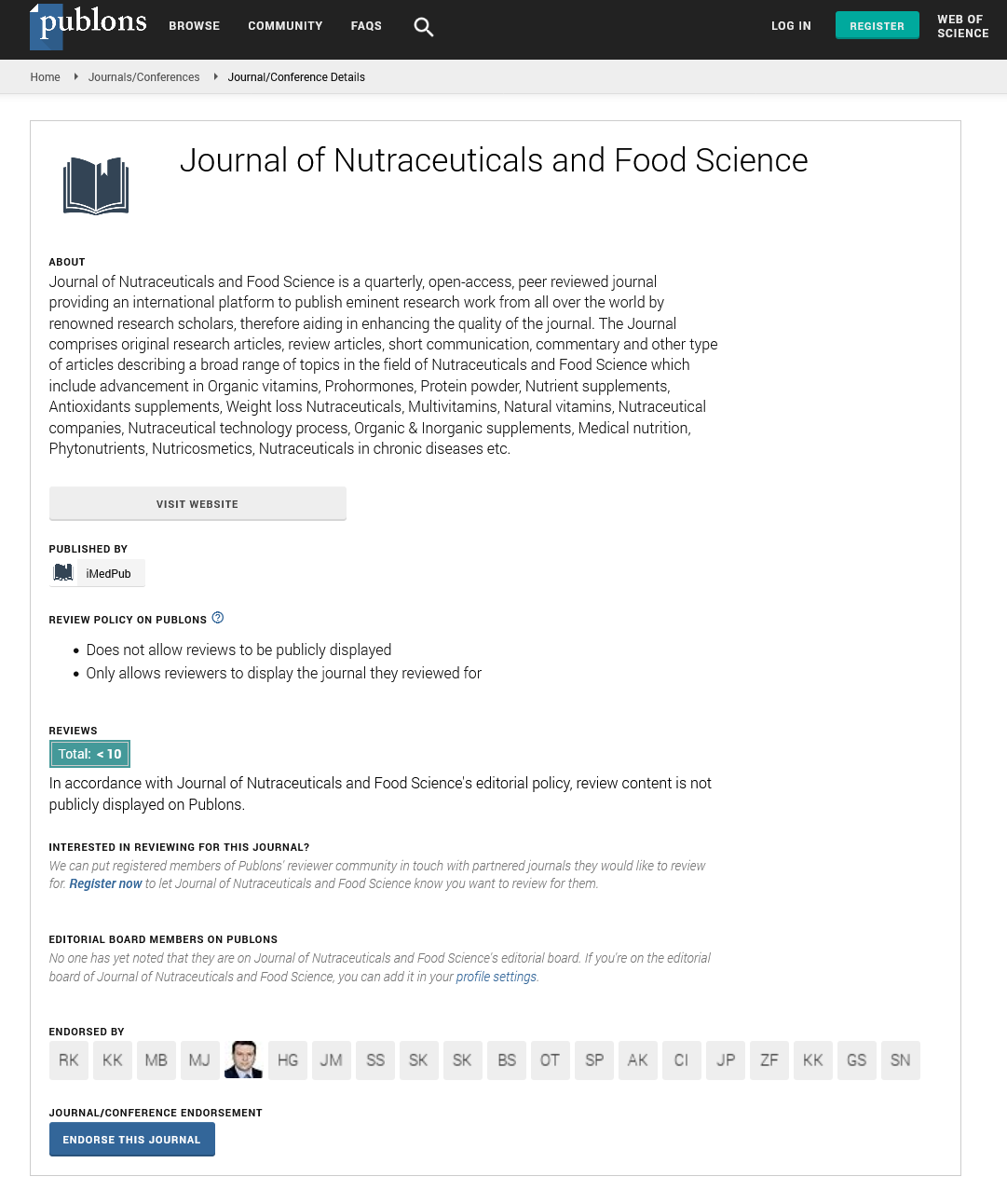Abstract
Effect of Different Concentrations of Carbon Dioxide on Physicochemical Traits of Grapes During Storage
Grapes are consumed globally as table fruit and in wine making but due to its delicate nature and soft texture, a significant portion of this valuable fruit is lost after harvest. Major factor behind its postharvest decay is fungal pathogen, Botrytis cinerea. Use of synthetic fungicides is a traditional approach to suppress this pathogen but after various health issues of fungicide residues being reported, this study was conducted as safe integrated approach involving tap water washing, CaCl2 dipping and modified atmosphere storage. Grapes were divided in 4 equal lots, 1st lot was immersed in quality tested tap water (To) and other three lots were dipped in 2% CaCl2 solution for 5 min prior to storage in modified atmospheric chambers under different concentrations of CO2. Physicochemical analyses of stored samples were then conducted and overall results designated that T3 (10% CO2 + 2% CaCl2 pre-storage dipping) effectively reduced gray mold incidence and well maintained other quality attributes followed by T2 (5% CO2 + 2% CaCl2) as second best treatment. T1(3% CO2 + 2% CaCl2) didn’t show any significant effect on quality traits while control grapes (0% CO2) started decaying at 4th day of storage and were completely spoiled at 8th day. Storage period comprised of 12 days and postharvest quality analyses were conducted with an interval of 3 days.
Author(s):
Muhammad Imlak, Muhammad Atif Randhawa, Ali Hassan, Naveed Ahmad and Sidrah Rafique
Abstract | Full-Text | PDF
Share this

Google scholar citation report
Citations : 393
Journal of Nutraceuticals and Food Science received 393 citations as per google scholar report
Journal of Nutraceuticals and Food Science peer review process verified at publons
Abstracted/Indexed in
- Google Scholar
- Publons
- Secret Search Engine Labs
Open Access Journals
- Aquaculture & Veterinary Science
- Chemistry & Chemical Sciences
- Clinical Sciences
- Engineering
- General Science
- Genetics & Molecular Biology
- Health Care & Nursing
- Immunology & Microbiology
- Materials Science
- Mathematics & Physics
- Medical Sciences
- Neurology & Psychiatry
- Oncology & Cancer Science
- Pharmaceutical Sciences


